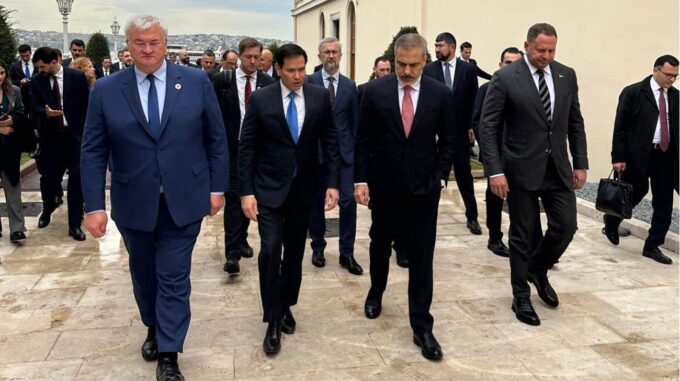Meeting in Istanbul: A New Stage in Ukraine-Russia Negotiations or an Attempt to Rehabilitate Last Year’s Agreements?

Summaries, Official Statements, and Situation Analysis Kyiv – Ukraine’s Minister of Foreign Affairs, Andriy Sybiga, has provided an in-depth analysis of the recent meeting between the Ukrainian delegation and representatives of the Russian Federation in Istanbul. According to him, this visit should neither be interpreted as another step toward reconciliation nor as the start of new negotiations with Russia. On the contrary, his words are based on a firm conviction: the meeting does not and cannot serve as a justification for easing international pressure on the Russian regime and should instead serve as a further signal in the context of strengthening Ukraine’s position. In his Facebook post, the minister emphasized: “The liberation of thousands of our citizens and their return home is, without exaggeration, a reward for our efforts and negotiations. This is 1,000 happy families. It is precisely for their sake that we work and that our main priority is connected to this. But it is important to remember: what happened on May 16 in Istanbul cannot be regarded as a continuation of the March 2022 negotiations. This is an entirely new format, new dynamics, new realities, and a new level of challenges.” He particularly pointed out that the Russian side’s representatives during the meeting lacked sufficient authority to make decisions that could influence the course of the war or a political settlement of the conflict. “Putin’s plan to portray this meeting as a logical continuation of the March 2022 negotiations is false,” Sybiga stated. “The circumstances are entirely different now, with a different geopolitical situation. And the main factor is the support of the United States and President Donald Trump’s efforts to achieve peace through diplomacy and strengthen Ukraine’s security.” The minister stressed that Ukraine will remain firm in its position, diligently working on the return of its citizens, strengthening defense capabilities, and establishing peace in the country. “No illusions: the Ukrainian side and the Ukrainian people will not abandon their goal. On the contrary, we are intensifying our efforts to achieve fair results. The war continues, and we strive to end it with a victory that will bring Ukraine security, stability, and sovereignty,” he emphasized. What led up to this important statement? On May 16, in Istanbul, the first direct negotiations between Russia and Ukraine took place in over three years. After their conclusion, Ukrainian representatives and military leaders discussed specific results and prospects. Ukraine’s Defense Minister, Rustem Umerov, reported that the talks involved the possibility of a ceasefire and humanitarian issues, as well as a potential meeting at the leadership level of both countries. This was the first such dialogue since the beginning of the large-scale war that Russia launched against Ukraine in late 2021. Although negotiations took place, official figures and diplomatic sources stressed that the Russian delegation expressed positions that Kyiv considers unacceptable. Foreign Ministry spokesperson, Georgiy Tkyhy, emphasized in his conversations with journalists that, while no binding agreements or concrete decisions were reached as a result, the parties did discuss important issues, including the humanitarian situation and the possibility of a top-level meeting. Analyzing the results of the meeting, Ukrainian officials underline that this is not a return to last year’s negotiations status nor a postponement of Kremlin’s responsibility for aggression. On the contrary, they see this meeting as revealing a new agenda based on a real change in circumstances and international support. According to his words, pressure from both domestically and internationally on Russia is increasing, and Ukraine is prepared to continue defending its independence, adapting its strategic approach, and fighting for the return of its territories and the release of prisoners. Overall, Ukrainian politicians and diplomats tend to interpret this unexpected opportunity for dialogue as another step in complex, multilateral negotiations aimed at halting bloodshed and creating conditions for lasting peace in the region. It is now the time for clear, consistent actions, confidence in our strengths, and sustained international support to ensure that Ukrainian values, sovereignty, and territorial integrity are protected now and in the future.

